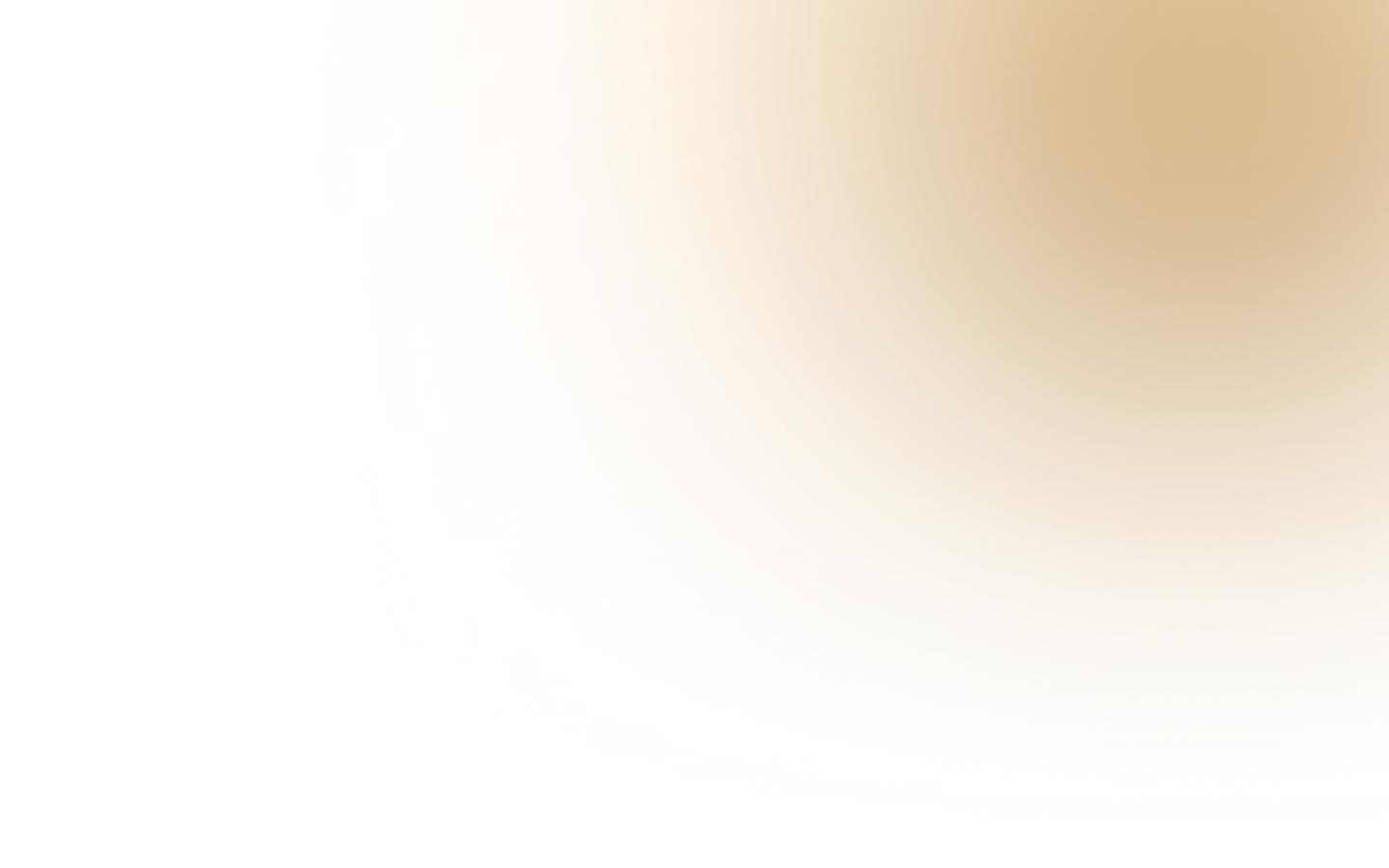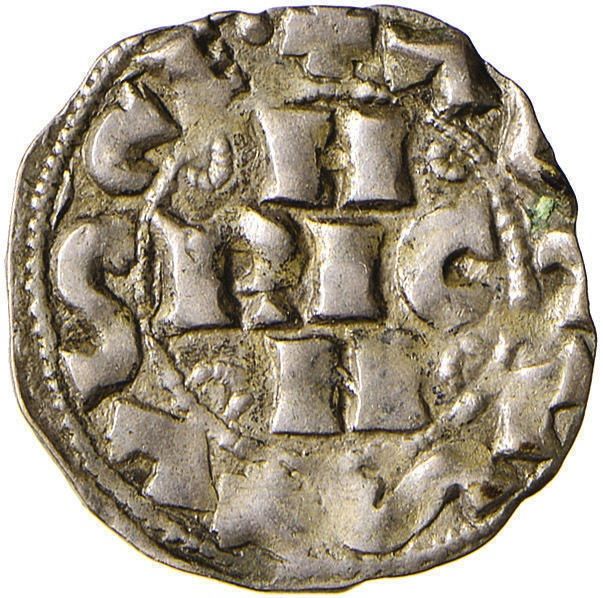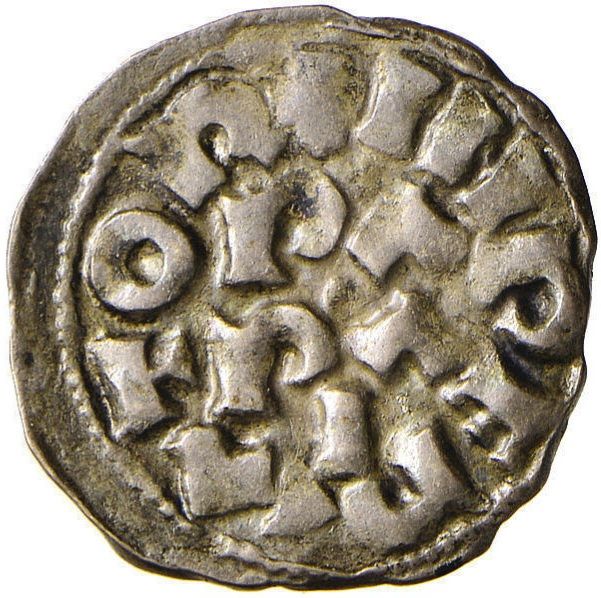

Italy, Kingdom of Denier - Henry III / Henry IV / Henry V (as emperors; Pavia; PAPAI)
Description:
1 Denier Denier - Henry III / Henry IV / Henry V (as emperors; Pavia; PAPAI) coin from Italy, Kingdom of. Design, history & value.
Introduction
The Kingdom of Italy Denier, minted during the reigns of Henry III, Henry IV, and Henry V, stands as a testament to the rich numismatic history of medieval Italy. This coin, bearing the legends of Pavia and PAPAI, offers a glimpse into the political and economic landscape of the time.
Historical Background
Issued by the Kingdom of Italy, these deniers were circulated between 1039 and 1160. The reigns of Henry III, Henry IV, and Henry V were marked by significant political turmoil and power struggles, making these coins valuable artifacts of their respective eras.
Coin Images
 Obverse
Obverse
 Reverse
Reverse
Design Features
The obverse of the coin showcases a detailed legend in three lines within a beaded circle, featuring beaded corners in quarters. The reverse displays the city name in three lines, with additional legends surrounding it. The intricate design of these deniers reflects the artistic sophistication of medieval Italian coinage.
Technical Specifications
This 1 Denier coin weighs 1.30g and has a diameter of 17.60mm. Crafted from billon, a mixture of silver and base metals, these coins were designed to withstand the rigors of circulation while maintaining their intrinsic value.
Collectible Value
The Kingdom of Italy Denier coins featuring Henry III, Henry IV, and Henry V hold significant collecting value among numismatists. Their historical importance, coupled with their rarity, contributes to their desirability among coin collectors worldwide. The market value of these coins can vary based on factors such as condition and historical provenance.
Conclusion
In conclusion, the Kingdom of Italy Denier coins bearing the likenesses of Henry III, Henry IV, and Henry V represent a pivotal period in Italian history. Their unique design elements, coupled with their historical significance, make them prized additions to any numismatic collection. By preserving these coins, we continue to honor the legacy of medieval Italy and the enduring artistry of its coinage. By following this structured approach, you can create a comprehensive and engaging article that caters to both coin enthusiasts and general readers interested in the history and collectibility of numismatic treasures.

ScanMyCoin: AI Coin Recognition
Professional AI coin recognition and collection management platform. Identify, learn, and track your coin collection with advanced AI technology and a vast.